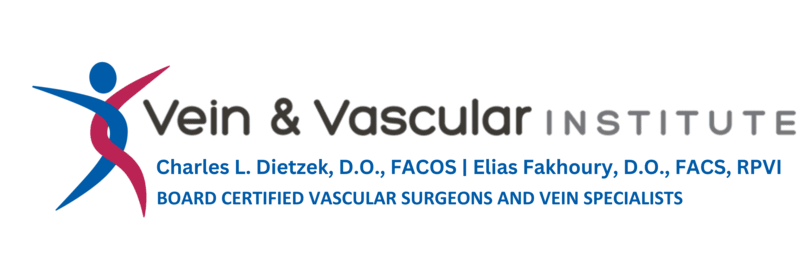Vein health is important to your overall health. Veins are part of the circulatory system; arteries deliver oxygen- and nutrient-rich blood to the cells of your body while veins carry away carbon dioxide and other toxins. Gravity helps arteries move blood downward from the heart, while veins must fight gravity to bring blood back up to the heart. Tiny valves in the veins help fight gravity by trapping blood so it cannot flow backward.
Vein problems can allow blood to pool in your lower legs. The pressure from excess blood can cause swelling and bloating of the blood vessels there, leading to the development of venous insufficiency, varicose veins, and other vein diseases. Venous insufficiency is a condition where the valves fail and allow blood to pool in the lower legs.
Healthy veins do a better job of circulating blood so it does not pool in the veins of your legs. While vein treatment safely and effectively treats the appearance of varicose veins, spider veins, and other vein problems, it is always best to avoid the development of these vein diseases.
You can take action for healthier veins by doing some things and not doing others. Here are a few dos and don’ts for optimal vein health.
Do This, Not That for Vein Health
Do stay hydrated
Water thins the blood so that it flows better through the veins. Dehydration can thicken the blood, thereby increasing the risk of venous insufficiency and blood clots.
Don’t expose your veins to heat for a long time
Lengthy exposure to heat, such as in a hot bath or sauna, causes veins to expand and dilate. Dilation of veins allows blood to pool; regular exposure to long periods of heat can lead to venous insufficiency and blood clots.
Do elevate your feet
Elevating your feet helps drain blood from your lower legs. For best results, lie down and elevate your legs so that your feet are above the level of your heart.
Don’t smoke
Smoking introduces chemicals that removes oxygen from the blood and thickens it, which dramatically slows blood flow.
Do walk
Exercise stimulates circulation to help move blood up and out of your lower legs.
Don’t sit or stand all day
Sitting or standing all day reduces blood flow, which allows blood to pool in your veins.
Do eat nutritious food
Fruits and vegetables contain vitamins and nutrients that strengthen vein walls and improve circulation.
Don’t lift heavy weights
While exercise is good for vein health, heavy lifting puts tremendous strain on the veins in your legs and feet.
Do consider vein surgery
Vein surgery safely and effectively relieves the appearance of varicose veins. Vein treatment usually involves irritating the diseased vein, which causes the vein to swell and close. The varicose vein breaks apart, dissolve and disappears from view. Blood goes through healthy veins nearby.
